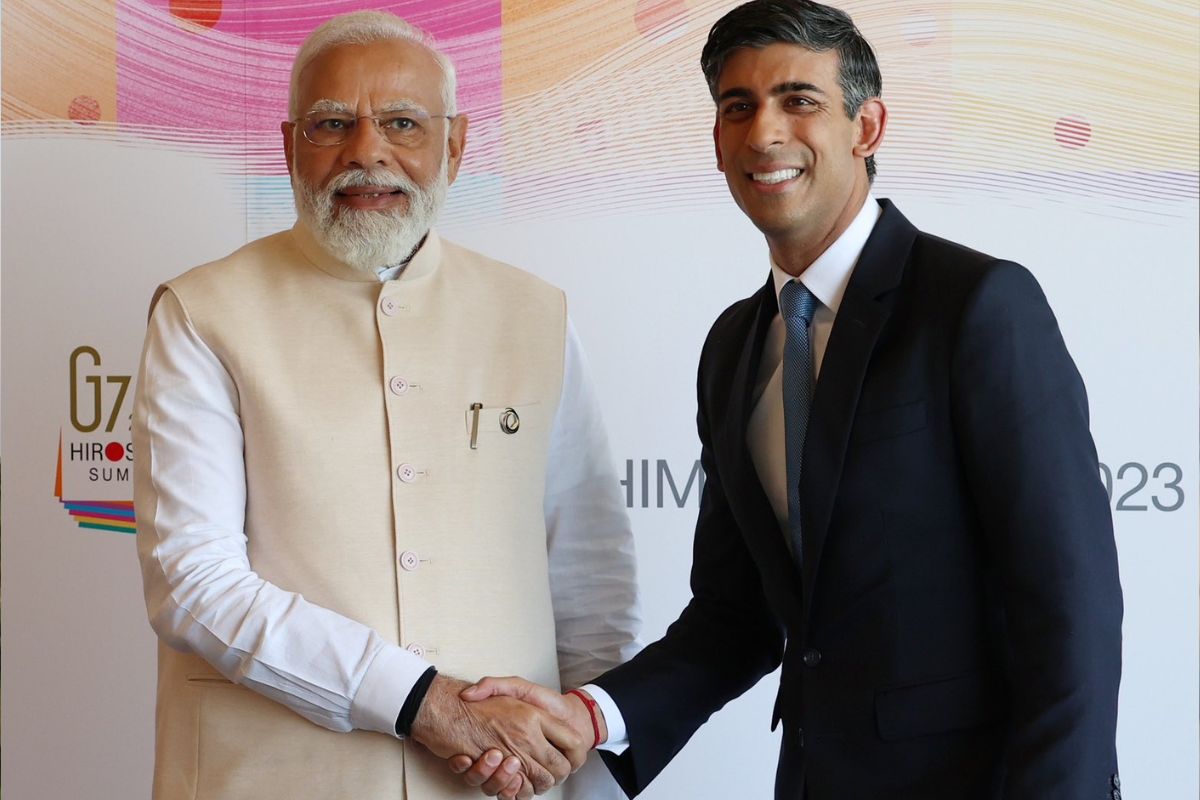By – Prakarsh Kastwar
Rishi Sunak’s India Visit: The UK Prime Minister briefed Parliament on his recent trip to New Delhi for the India-led G20 Summit.
Rishi Sunak, the British prime minister, informed UK parliamentarians that he held “warm and productive” talks with Prime Minister Narendra Modi about a free trade deal (FTA) with India. The Prime Minister of the United Kingdom briefed Parliament on his recent trip to New Delhi for the India-led G20 Summit. The 43-year-old leader spoke to the House of Commons about his and his wife Akshata Murty’s Indian ties and financial interests in India.
“For the record, let me state unequivocally that I and my family are of Indian descent.” “My wife and her family are Indian citizens with financial interests in India,” Rishi Sunak added, referring to Akshata Murty’s Infosys shares.
Rishi Sunak also emphasized the three main goals of his India visit, which included raising diplomatic pressure on Russian President Vladimir Putin, taking action on climate change, and improving ties with India.
“I had warm and fruitful discussions with Prime Minister Modi about strengthening our relationship in defense, technology, and a bilateral free trade agreement,” Rishi Sunak said.
“Putin has lacked the courage to face his G20 counterparts on a daily basis.” His activities cause unimaginable agony in Ukraine, violate the UN Charter, endanger European security, and disrupt global energy supply… “Leaders have come together to condemn the human suffering caused by Putin’s war,” he said.
He emphasized that the UK is regarded as a global leader on climate concerns, saying, “At the G20, I made a record commitment of over 1.6 billion pounds for the Green Climate Fund, the single biggest international climate pledge the UK has ever made.”
“I was emphatic with Premier Li that actions that seek to undermine British democracy are completely unacceptable and will never be tolerated,” the UK PM stated of China. I also emphasized the UK’s unwavering commitment to human rights, and I was emphatic about the significance of stability and international law as the foundation for stable ties.”

